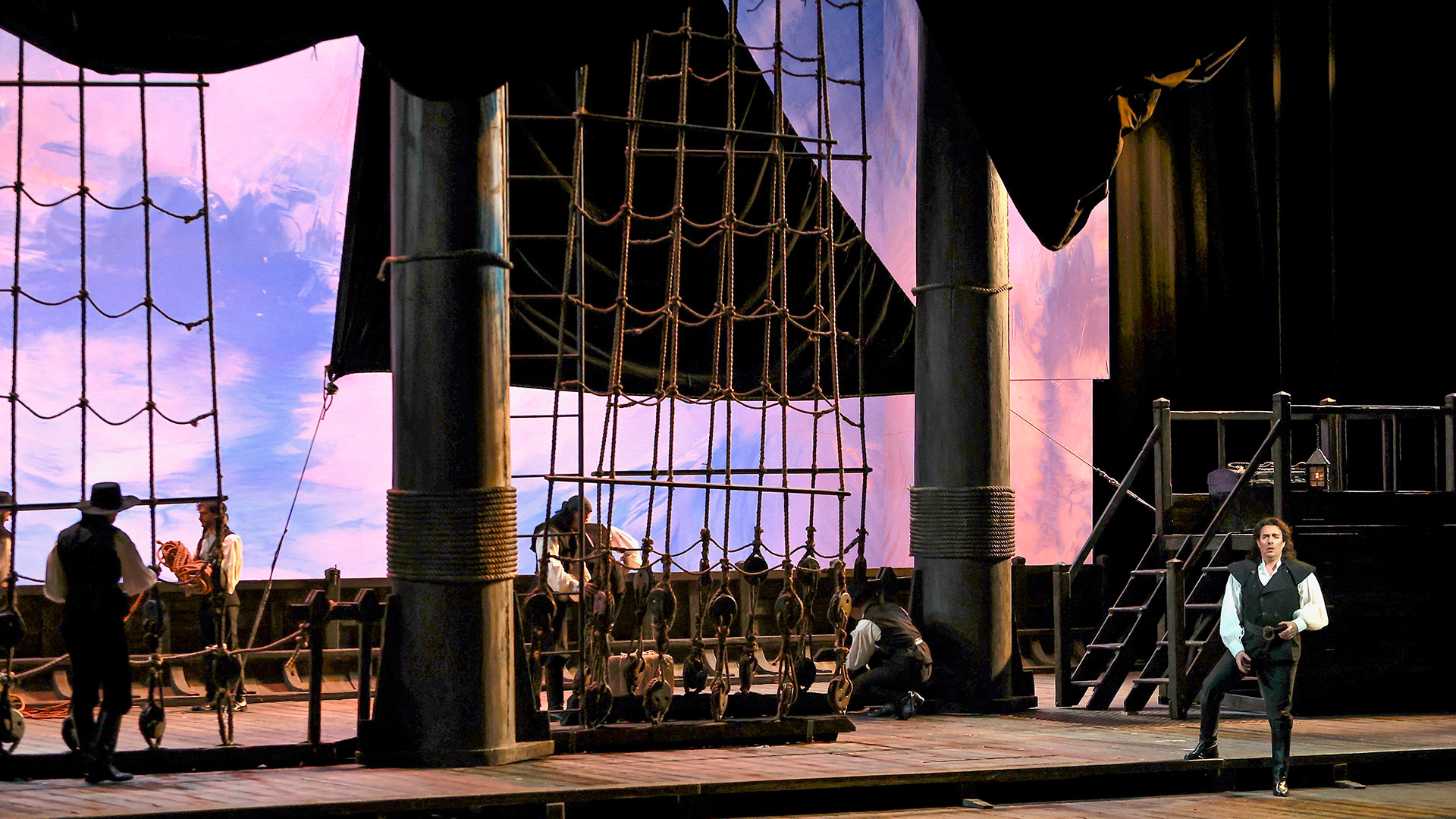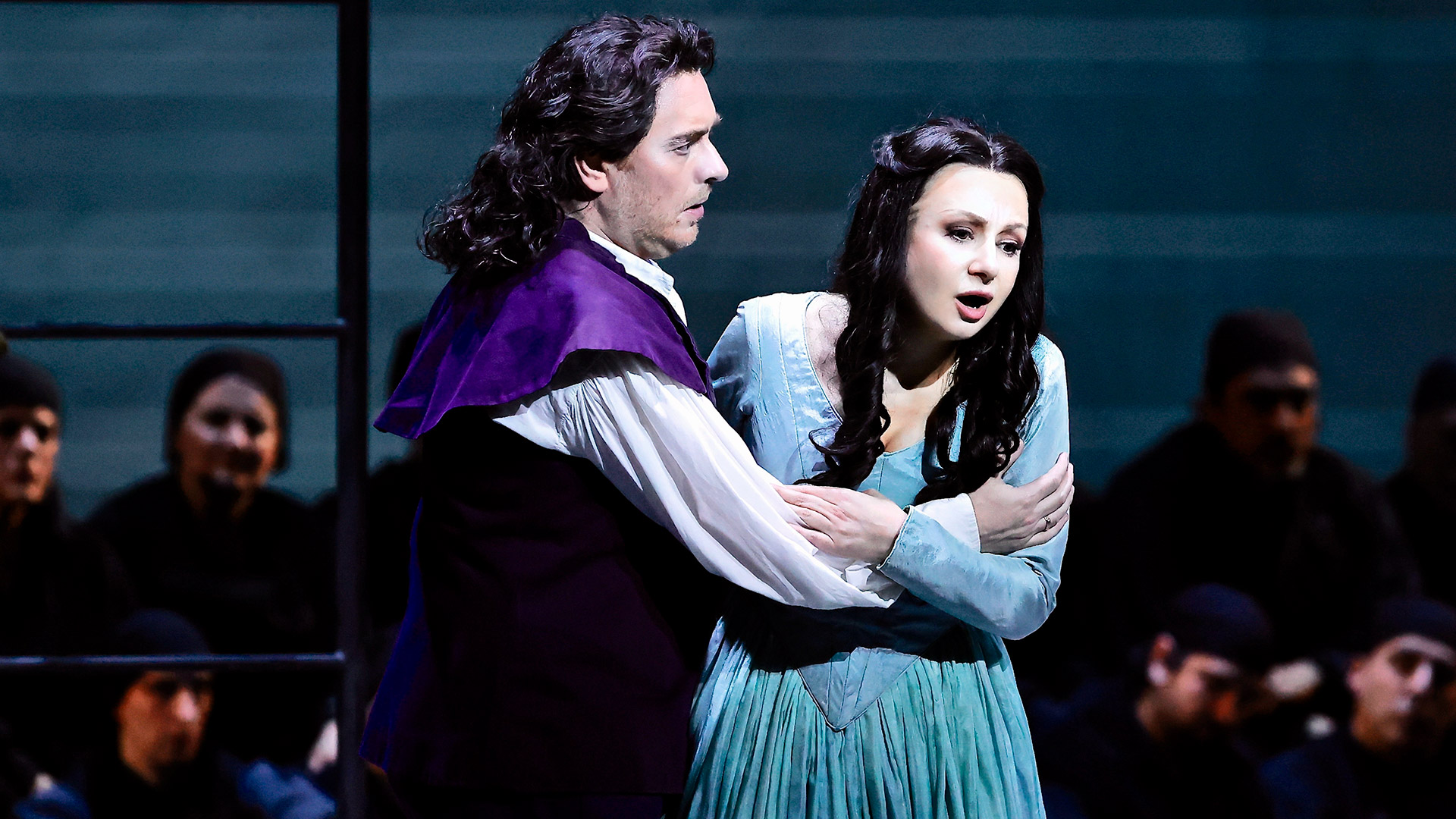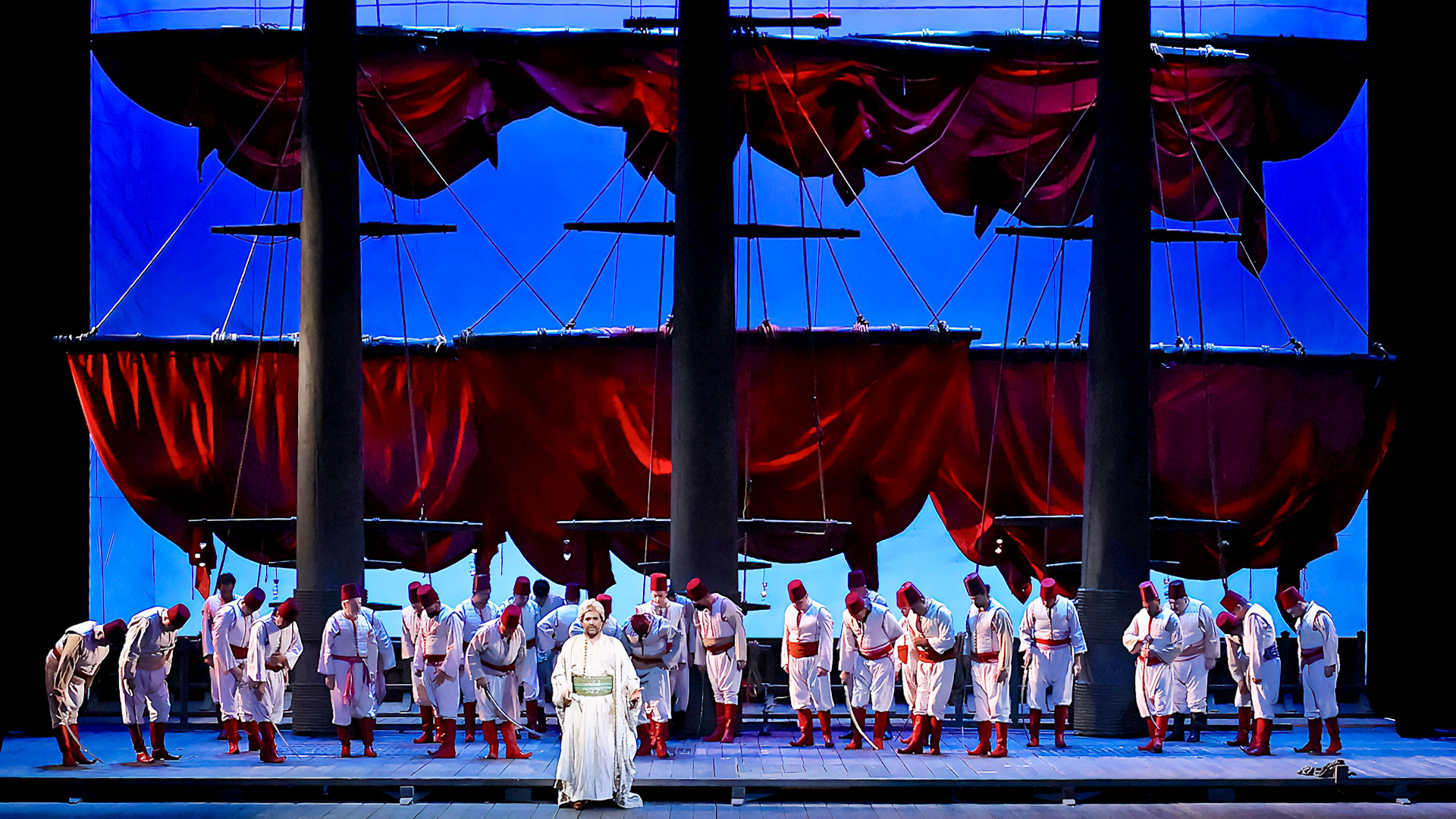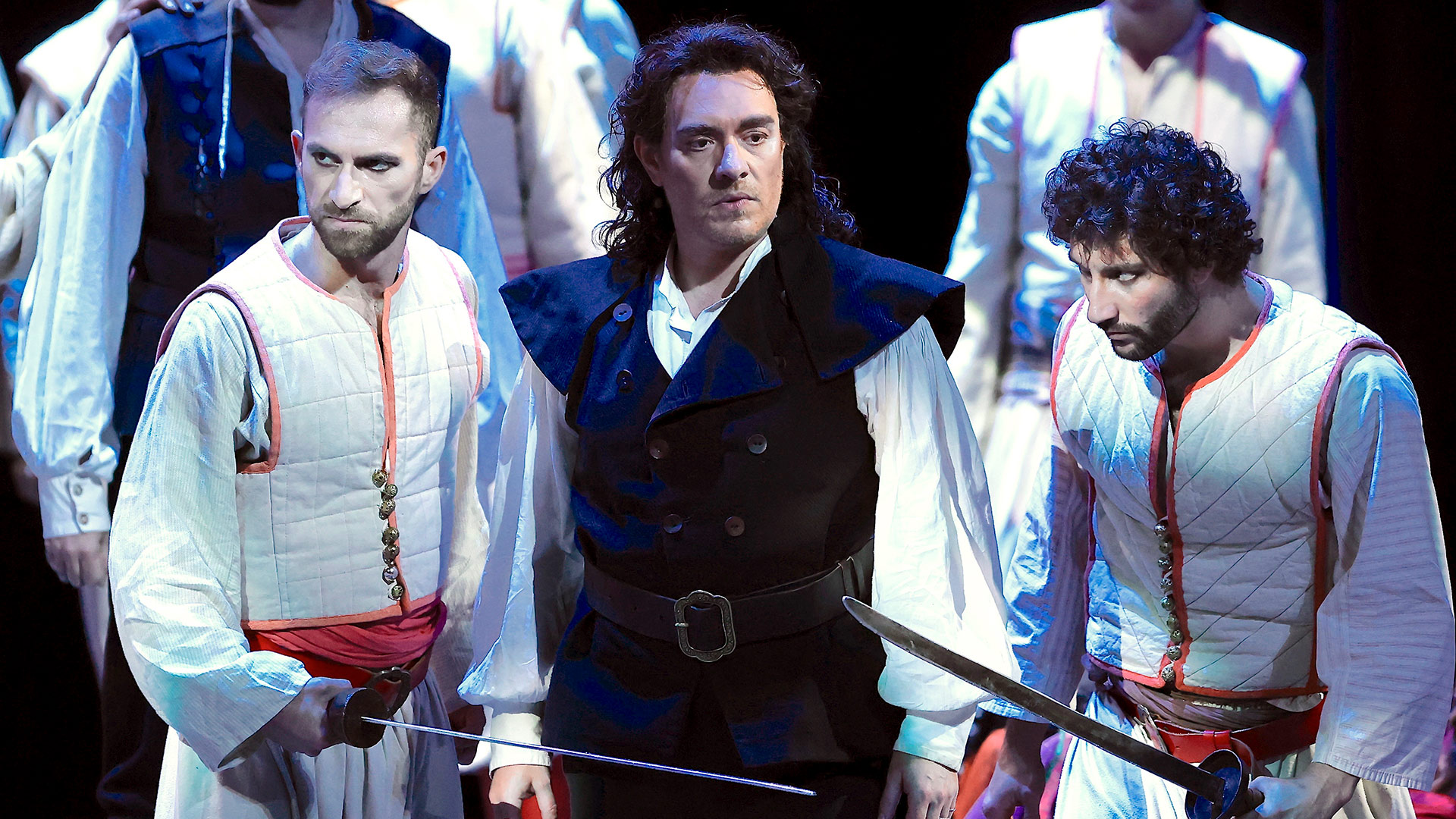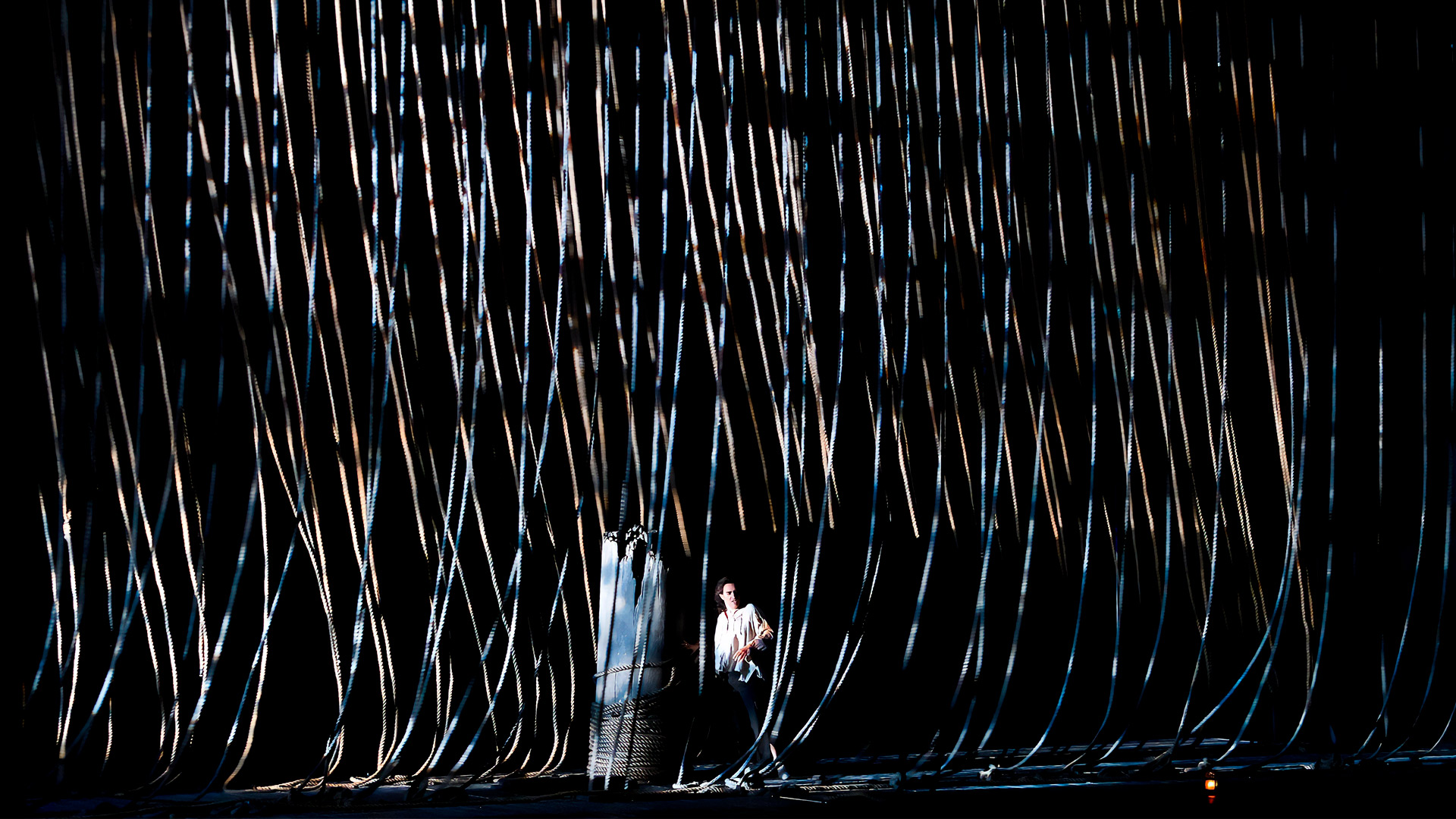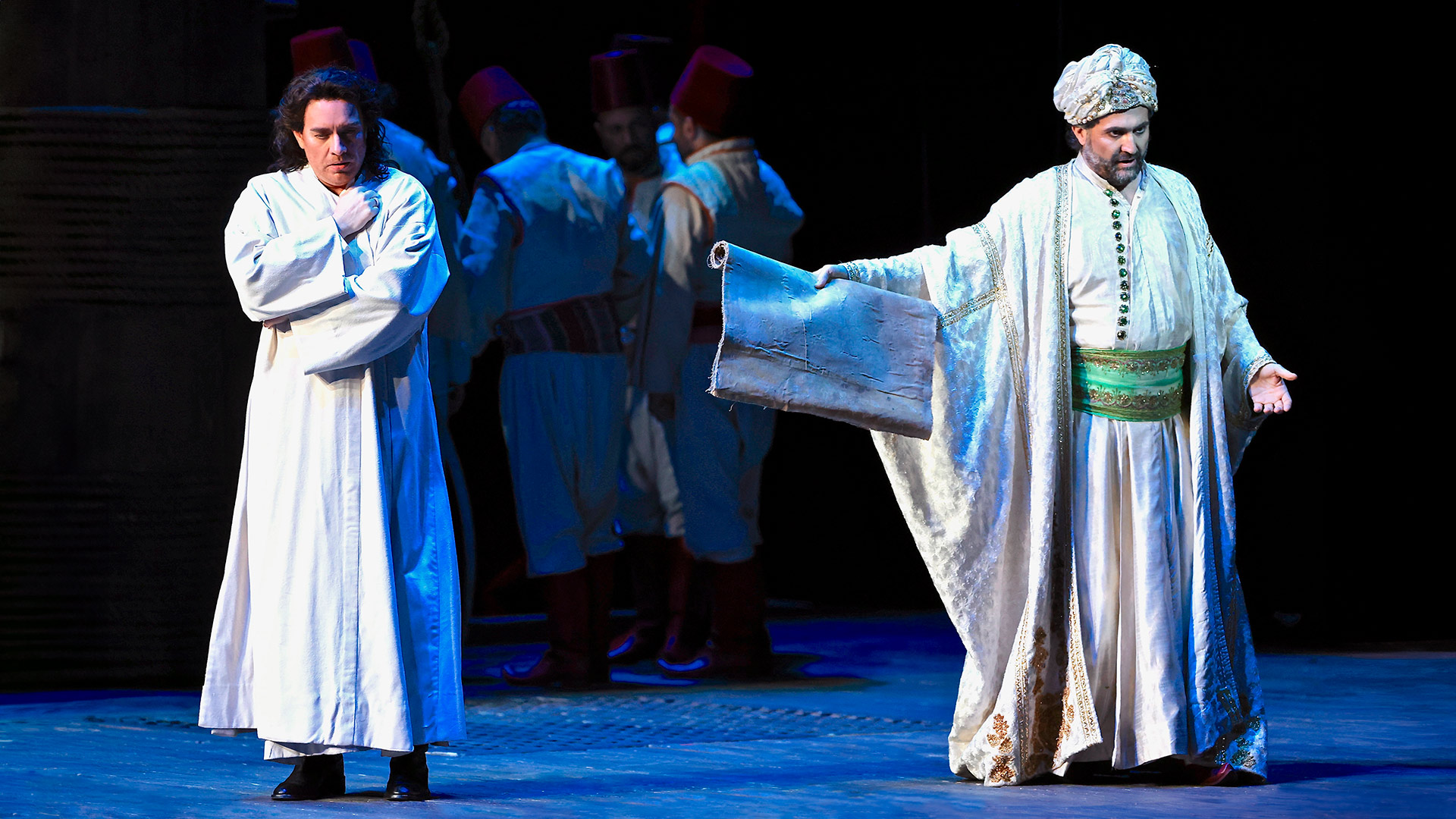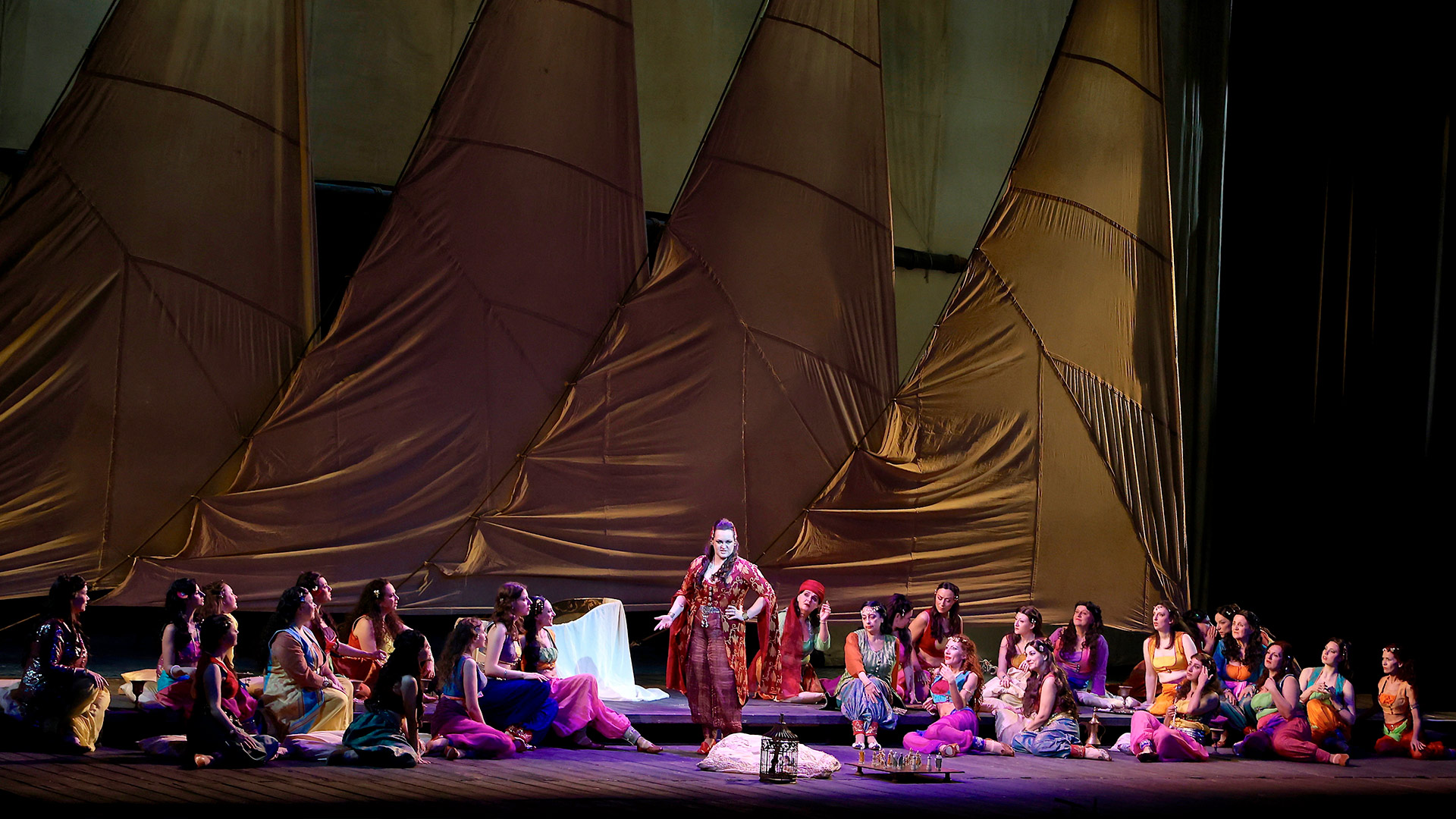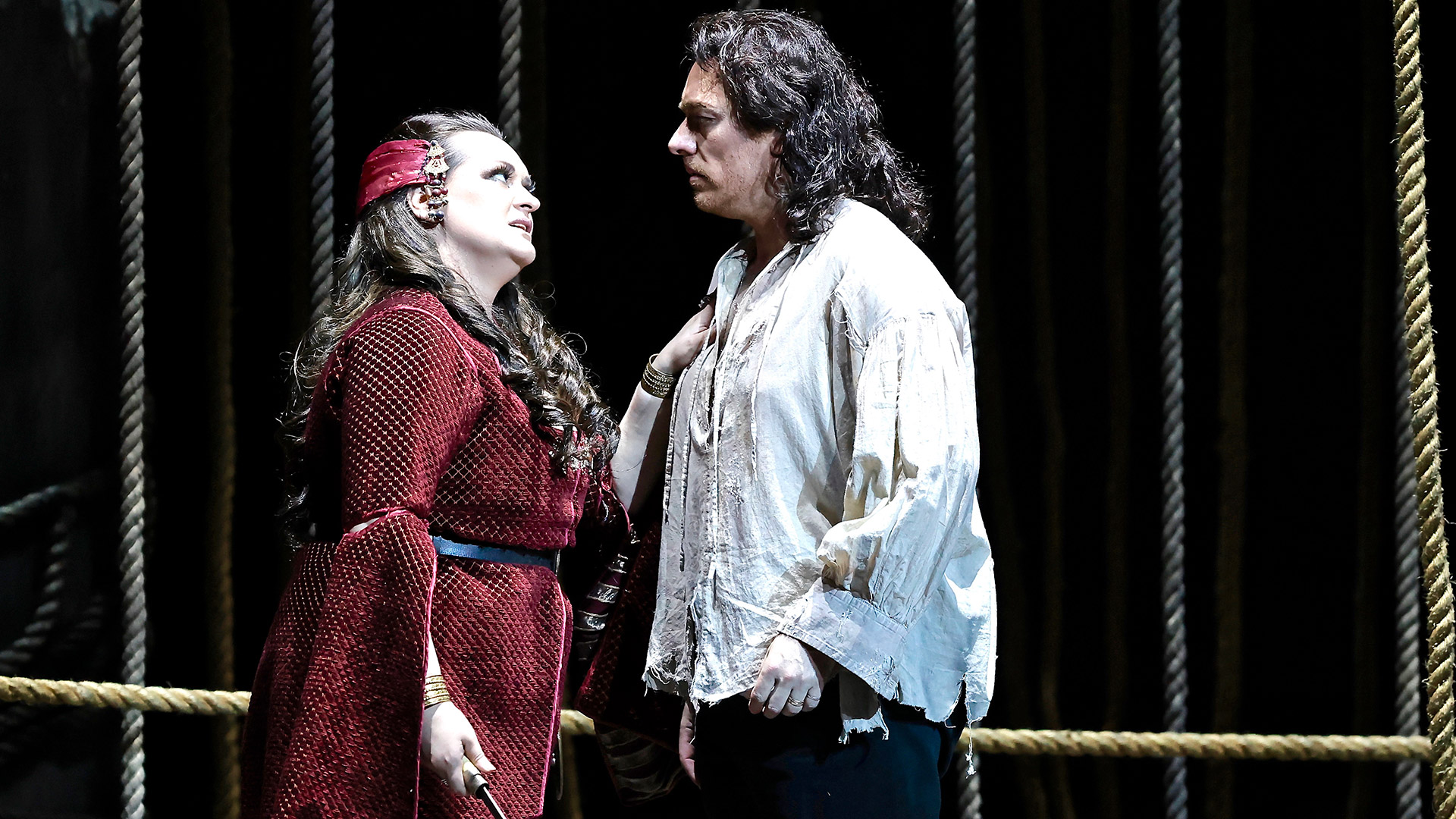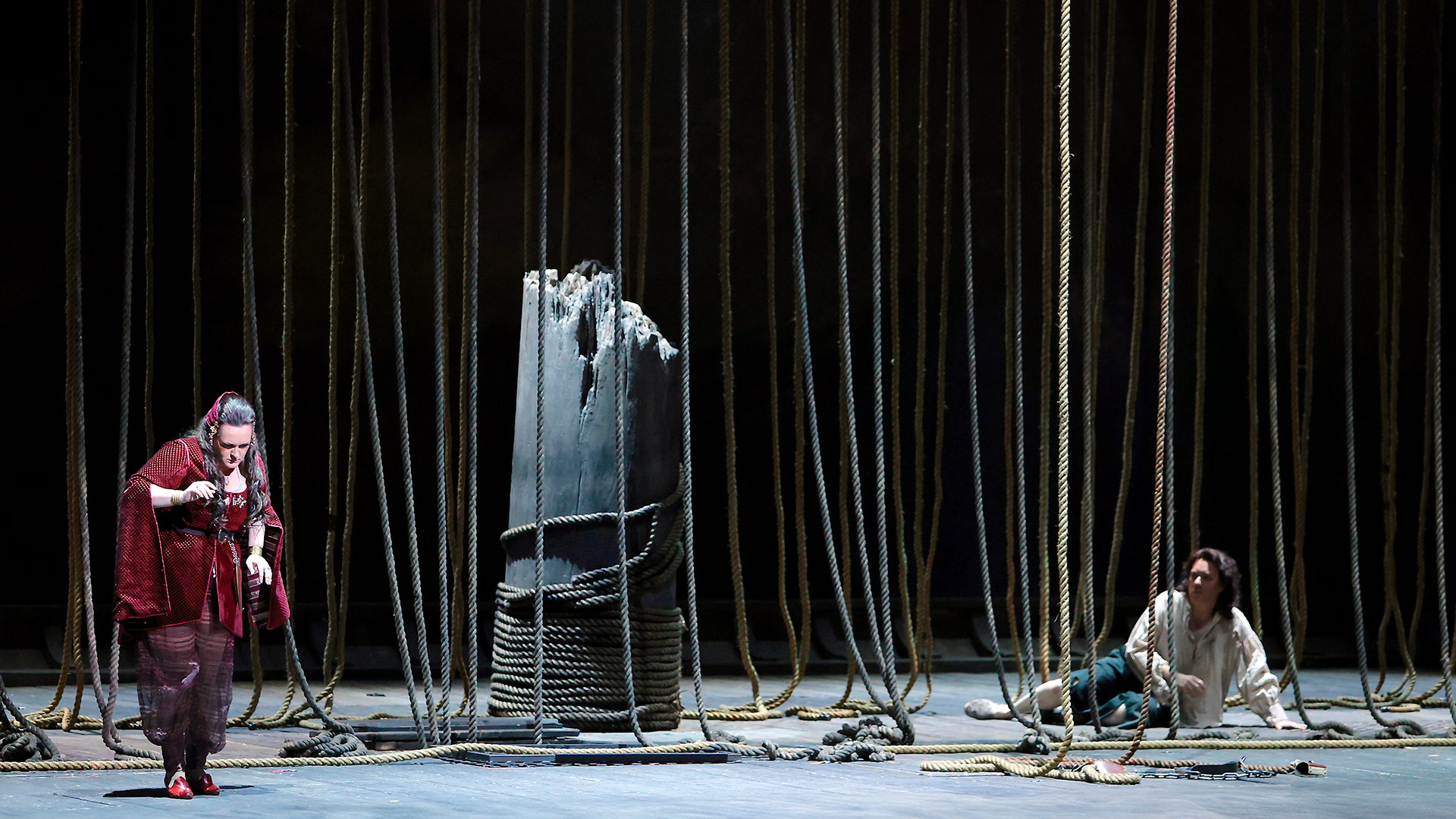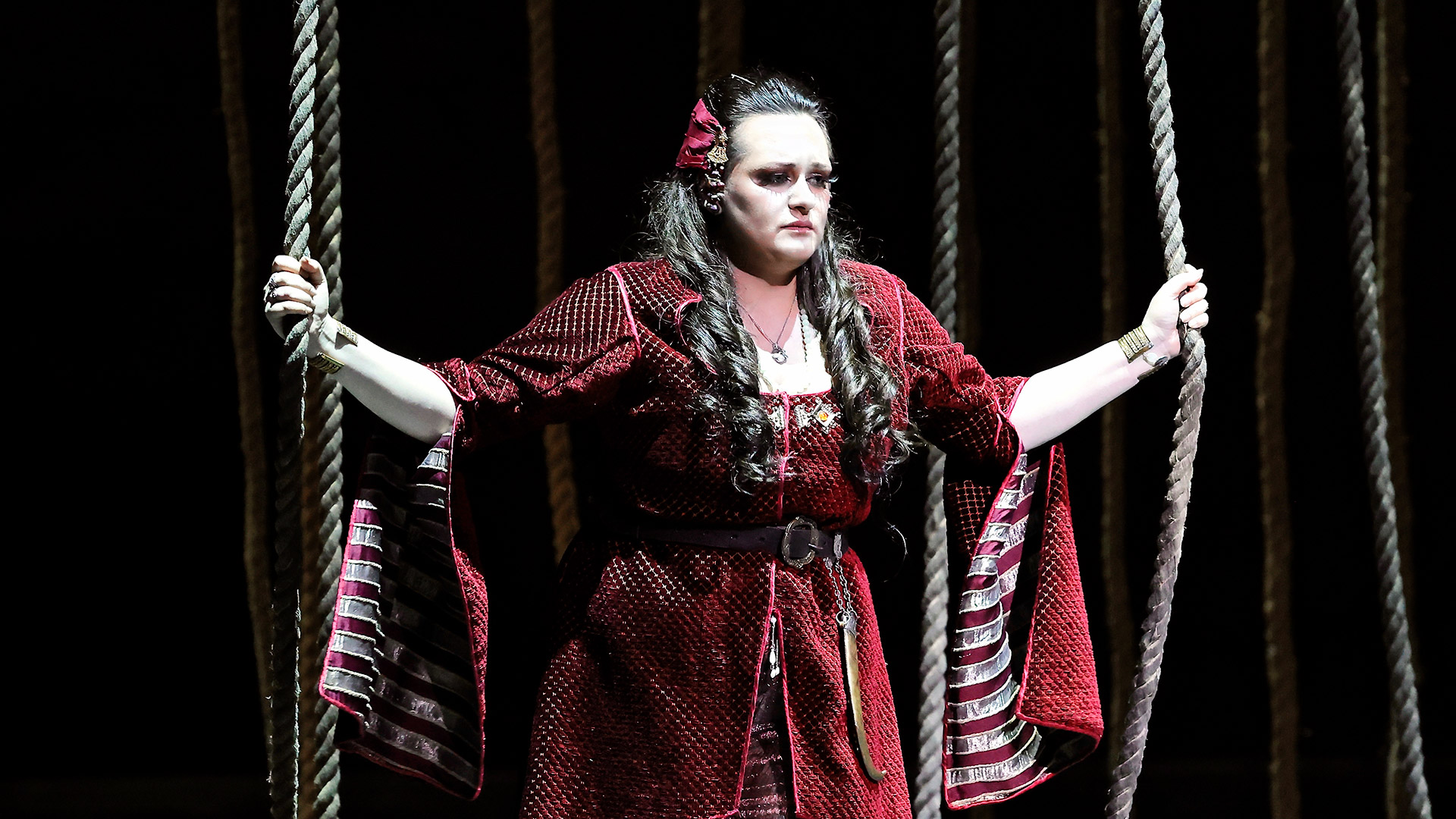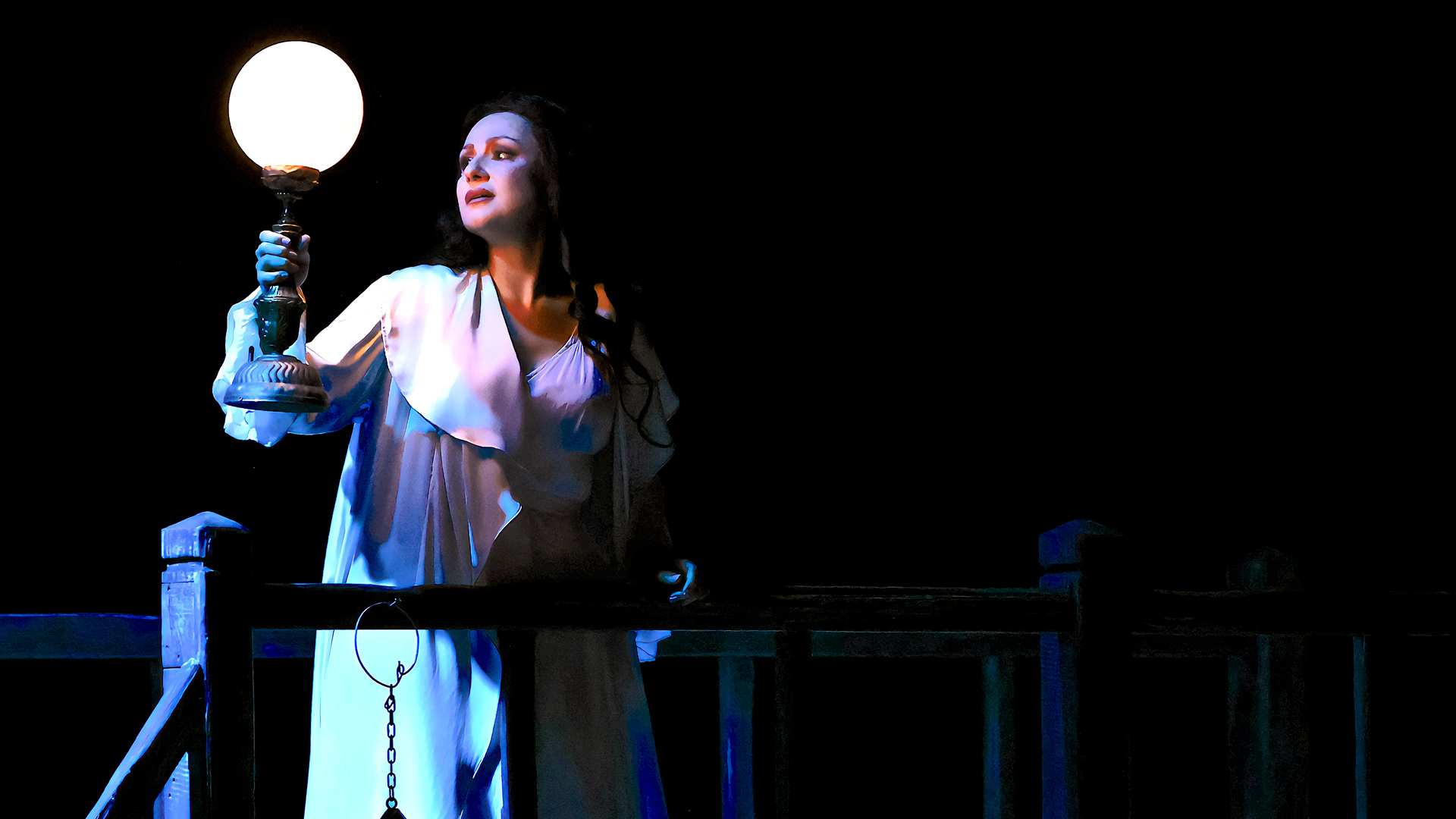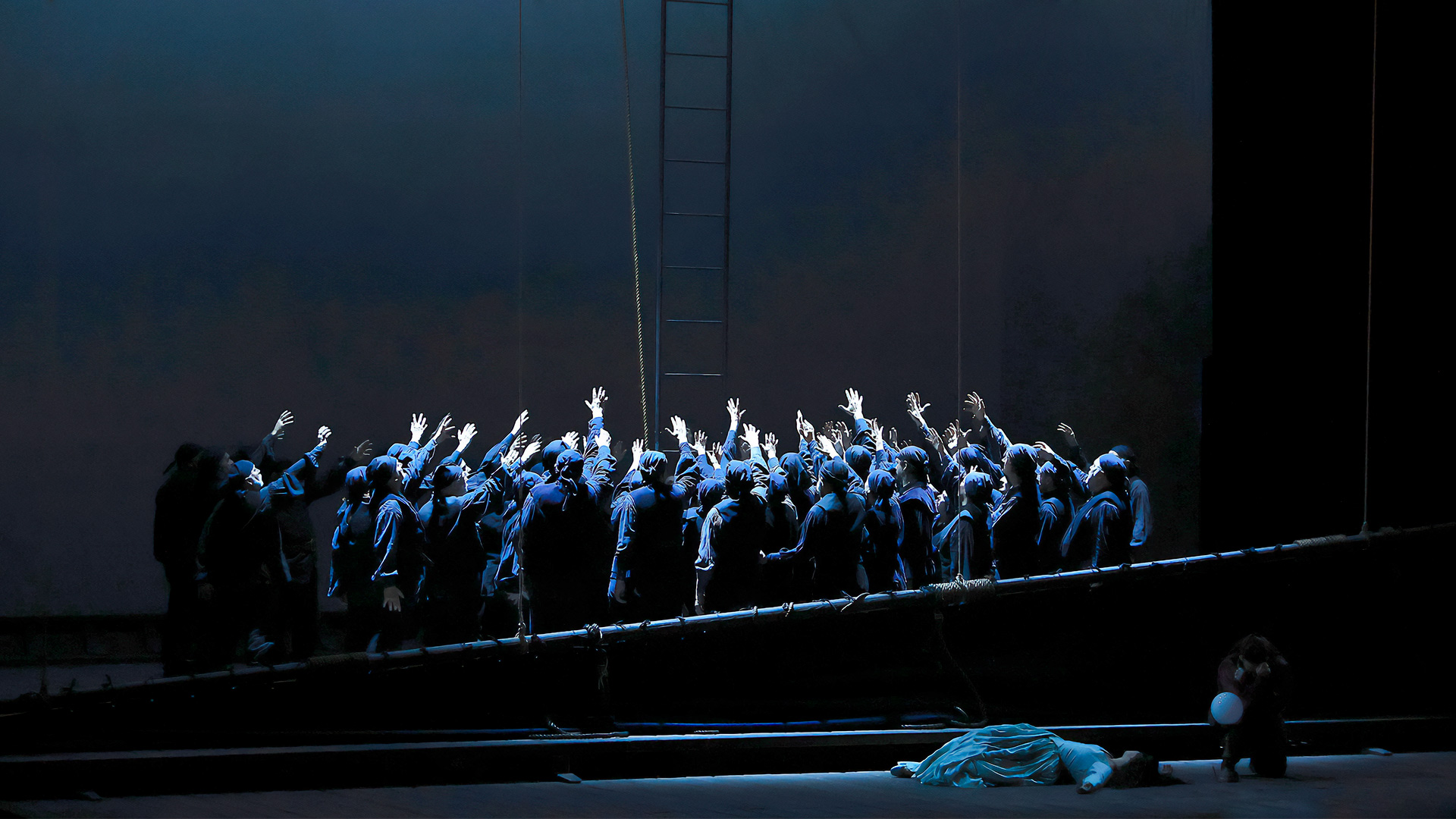Tragic melodrama in three acts by
Giuseppe Verdi
with libretto by Francesco Maria Piave,
from the short poem by George Byron
Characters and interpreters:
Corrado
Francesco Meli
Medora
Irina Lungu
Seid
Mario Cassi
Gulnara
Olga Maslova
Selimo
Saverio Fiore
Giovanni
Adriano Gramigni
A eunuch
Giuliano Petouchoff
A slave
Matteo Michi
Conductor
and orchestrator
Renato Palumbo
Director
Lamberto Puggelli
Set designer
Marco Capuana
Costume designer
Vera Marzot
Weapons master
Renzo Musumeci Greco
Lighting design
Maurizio Montobbio
Director’s assistant
Pier Paolo Zoni
Set up by the
Fondazione Teatro Carlo Felice di Genova
in co-production with the
Teatro Regio di Parma
Orchestra, choir and technicians of Opera Carlo Felice
Claudio Marino Moretti, choirsmaster
Staging director
Luciano Novelli
Stage musical director
Andrea Solinas
Répétiteurs
Sirio Restani, Antonella Poli
Stage musical assistants
Andrea Gastaldo, Anna Maria Pascarella
other Choir Master
Patrizia Priarone
Lighting Master
Silvia Gasperini
Supertitle Master
Simone Giusto
Head of musical archives
Simone Brizio
Scenic director
Alessandro Pastorino
Vice scenic director
Sumireko Inui
Consolle supervisor
Andrea Musenich
Stage technicians foreman
Gianni Cois
Chief electrician/lighting booth
Marco Gerli
Tooling foreman
Tiziano Baradel
Audio/video foreman
Walter Ivaldi
Head of tailoring, shoemaking, make-up and wigs
Elena Pirino
Make-up and hair co-ordinator
Raul Ivaldi
Scenes, costumes and props
Fondazione Teatro Carlo Felice
Fondazione Teatro Regio di Parma
Equipment
E. Rancati
Footwear
Epoca
Surtitles by
Enrica Apparuti
Opera in brief
by Ludovica Gelpi
Verdi composed Il corsaro in a period of very intense activity, only a few months after the previous work, Macbeth, and the following one, Luisa Miller: these were his ‘jail years’. The composer was in Paris and in the winter between 1847 and 1848, having to fulfil a delivery to the publisher Francesco Lucca, he devoted himself to the production of this tragic melodrama in three acts, although he was still unclear when and if the opera would be performed. The subject, the eponymous poem by George Byron, had caught Verdi’s attention in 1844, so much so that he had already entrusted the reduction to an opera libretto to Francesco Maria Piave. The story traces the adventures of a group of corsairs, including the protagonist Conrad, his beloved Medora, and also the pasha Seid with his Muslim soldiers, his odalisques and the beloved Gulnara. The characters live amidst overwhelming love, battles and intrepid adventures at sea. It is an affair in full romantic spirit, very much akin to the Milanese and Parisian cultural circles frequented by Verdi. Despite the initial impetus, and perhaps also due to the frenzy of that professional period, the composer did not take much interest in the fate of his creation, so much so that he did not attend the first performance, on 25 October 1848 at the Teatro Grande in Trieste. The Corsaro‘s fortunes were poor, after the first performances the opera was not performed again until 1963, and to this day it is one of Verdi’s least frequently performed operatic works.
The dramaturgy is sometimes noted as a weak point of the play, yet the characters are well characterised and find their proper place in a cohesive and concise action. The protagonist has a mysterious past: we do not know why Corrado, a man with a strong sense of honour and capable of sincere feelings, has ‘converted’ to a life as a mercenary, made up of fights and violence. The complexity of his character, a true romantic hero full of contrasts, is effectively rendered throughout the play. Medora, for her part, has less space on stage than the other co-protagonists, but it is enough for her tormented love to be portrayed with rare intensity. Seid himself, a pure antagonist, is not lacking in fascinating nuances: the pasha moves from cruelty and ruthlessness towards his enemies and in particular Conrad, to vulnerability in the face of his beloved Gulnara – whom he also holds prisoner and considers a possession of his own. Gulnara, the other woman, the one who for Corrado can never be Medora, is a character of enormous romantic strength: despite an ungrateful fate, which has made her first a prisoner of Seid’s sick love and then of her own, unrequited love for Corrado, the young woman fights for her ideal of freedom, for which she is ready to become an assassin and risk her own life. The singularly varied choral dimension takes shape amidst the mysterious exoticism of the pasha’s odalisques, amidst the heartfelt heartfelt heartfeltness of Medora’s handmaids, and is inflamed in the battle scenes, as much between Conrad’s wild corsairs as between Seid’s resolute Muslim soldiers and dukes. The last scene, almost an open ending, brings together the main traits of each character, leaving the viewer to choose whether Conrad will go to his death torn by grief, finally succumbing to the depths of his evil, or whether he will be saved by his corsair companions, until perhaps one day he will be able to love Gulnara as he loved Medora.
Verdi’s music offers passages of great lyricism and dramatic intensity in the exaltation of the moments of greatest pathos, but also cohesion and fluency in the scenes of relaxation. There is no lack of references to the Italian tradition of the first half of the 19th century, the solid awareness acquired in the 1940s, but one perceives the desire for an evolution in both musical writing and formal structure. With Il corsaro Verdi prepared to close his ‘first period’ in search of new ideas, to arrive at those highly personal insights that would soon consecrate him with his famous Rigoletto, Il trovatore and La traviata and would definitively change the history of melodrama with the experimental works of his maturity.
